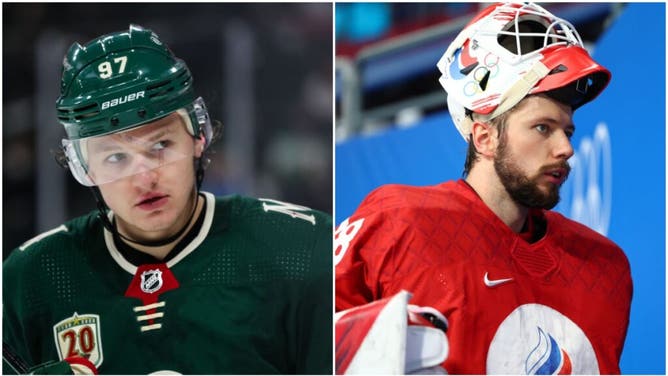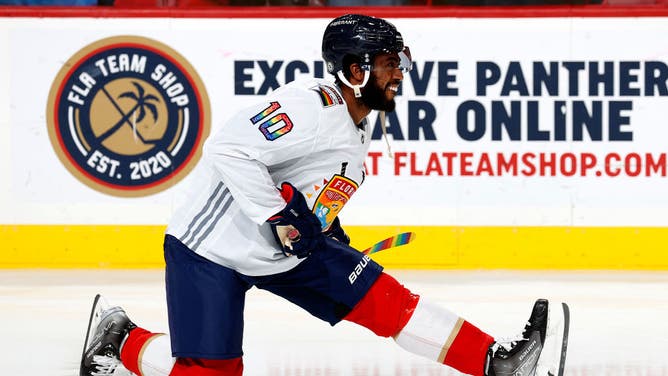NHL Hasn't Seen Anything To Indicate Russian Players Are At Risk Over Pride Jerseys; History And Common Sense Says Otherwise
NHL Deputy Commissioner Bill Daly says that the National Hockey League has seen nothing to suggest that Russian players could face risks for wearing Pride jerseys.
The concern stems from a law passed in Russia that forbids LGBTQ "propaganda." This law and how it could affect Russian players and their families has caused several teams — the Blackhawks, Wild, and Rangers, according to The Athletic — to forego wearing rainbow-colored warm-up sweaters.
NHL Deputy Commissioner Bill Daly — the league's No. 2 behind Commissioner Gary Bettman — said that the league had not seen anything to suggest players were ever at risk.
“We take all risks seriously, and this one is no different,” Daly told The Athletic via email. “Having said that, we have no information that would suggest there is any material threat that would exist (in Russia or otherwise) related to a Russian player participating in a club’s Pride activities.”
Daly's statement contrasts in some ways with one issued by the Blackhawks.
The Blackhawks' statement — once again to The Athletic — acknowledges the lack of any "material threat" to an individual. That said, the team felt a need to act over a "more general threat toward certain players."
“We are unaware of any direct, material threat on an individual currently. That being said, we understand that there is a more general threat toward certain players and believe we need to respond accordingly. We will not have any further comment on this matter at this time."
The team went on to reiterate that while the jerseys won't be seen, Pride Night will still occur.

Kirill Kaprizov of the Minnesota Wild and Philadelphia Flyers prospect Ivan Fedotov are two Russian players that have had run-ins with their home country's government. (Getty Images)
This Is Not The NHL's First Brush With Russia
While playing in the NHL for a Russian-born player doesn't involve defecting the way it did for Alexander Mogilny and the Russian Five, it's still a hairy situation especially given the influence of current events.
Minnesota Wild star Kirill Kaprizov faced difficulties getting to the United States ahead of the season due to visa issues. The team reportedly had to turn to people GM Bill Guerin told USA Today were "special friends" in Washington.
Meanwhile, Russian authorities arrested Philadelphia Flyers goaltending prospect Ivan Fedotov last summer for allegedly evading military service after signing an NHL deal. He was reportedly sent off to a remote base for training.
But while the NHL, isn't new to dealing with the Russians, this latest incident is easily one of the most complicated the league has faced.

Anthony Duclair of the Florida Panthers warms up in one of the team's Pride Night sweaters. (Photo by Eliot J. Schechter/NHLI via Getty Images)
There Are Legitimate Safety Concerns At Play, Even If It Angers Progressives
It appears to be a very real threat, otherwise, teams wouldn't dive on the woke grenade the way they are.
Every time a team ditches the rainbow warm-ups, blue checkmarks come out of the woodwork to blast them. However, each team that did this still supported the LGBTQ+ community by holding Pride Night.
If you thought that would be enough to skirt criticism, then clearly you haven't encountered these folks too much. Lucky you.
Perish the thought that teams would show genuine concern about the safety of their players and their extended families over validating peoples' sexual identities (which, by the way, is not the job of a professional sports team).
There's enough evidence to suggest that the threat is real inside and outside of the hockey world.
It should disturb every American that Russian laws are affecting how we do business here in the United States. No matter what the law is about or what your stance on it is; it shouldn't have any impact here in the US.
The key word in that last sentence was "shouldn't." Unfortunately, this one does.
Follow on Twitter: @Matt_Reigle